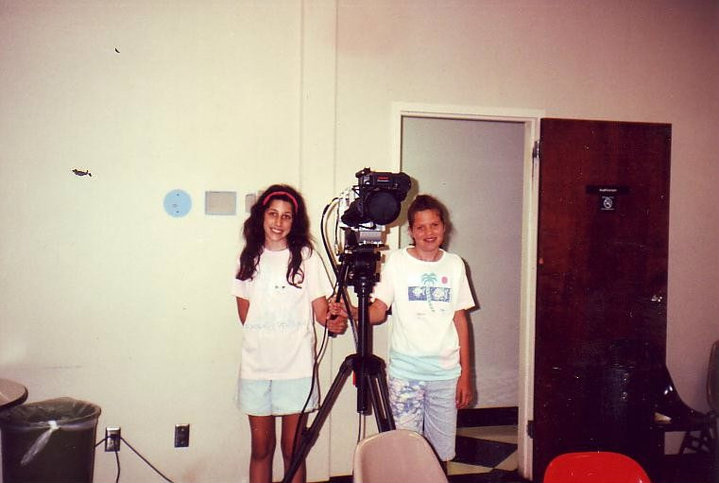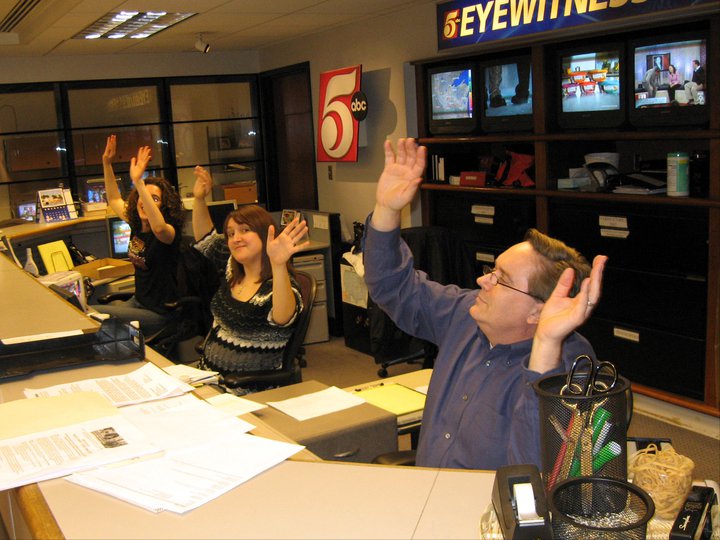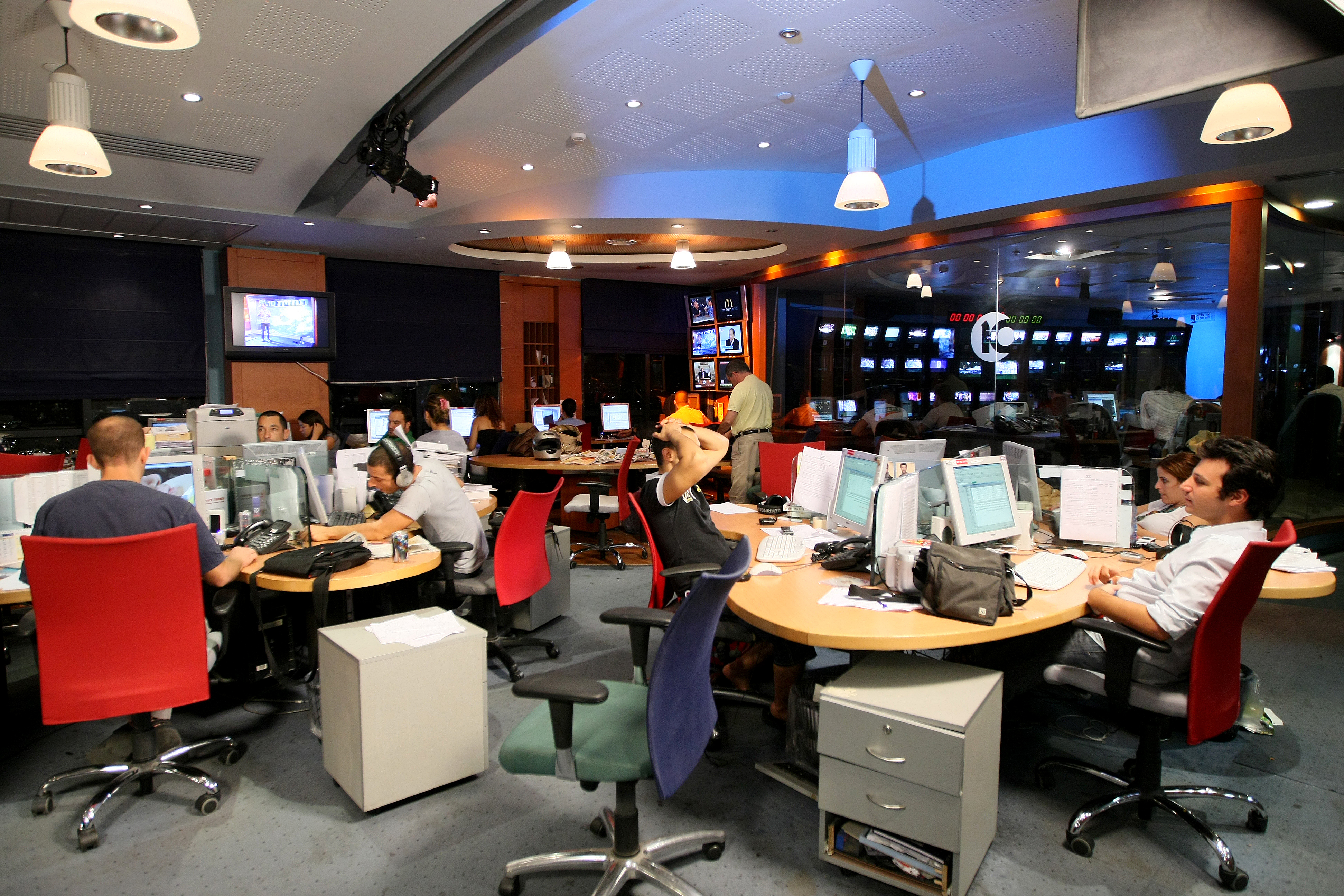
Having a career in TV news seems all glitz and glam, but what people don’t realize is that it is a business. It’s more than just living your dreams. There are people in newsrooms all around the world working 24/7 to make sure that you get your news delivered in a reasonable time.
If you don’t count the local community station where I volunteered and learned all the aspects of TV at age 9, I had the opportunity to work for three stations between the ages of 26 – 31: KSTP in St. Paul (Market 15) as a Traffic Producer and later an Assignment Editor, CBS Los Angeles (Market 2) as a Traffic Producer and KEYT in Santa Barbara (Market 124) as an Assignment Manager and Web Producer. KEYT was my last stop and I hung up my reigns in 2012.
At the time, I loved the rush of TV news and the energy that it brought to my life. I loved living my life on the edge.

It takes a strong and tough personality to work in TV news, but people either do one of two things: they end up staying in the business the rest of their life or they transition into public relations/marketing/sales like I did. I did it because I wanted to make better money and I felt that the industry was becoming incredibly unstable. It is probably the best thing I’ve done for myself. Today, once in awhile I will freelance for a news story if asked.
If you’re thinking about a job in TV news, consider these pros and cons:
Pros:
- You get your foot in the door. I got a full time job at KSTP, my first station, after working part time as a traffic producer for the morning show traffic anchor through a traffic information provider company called NAVTEQ. I made connections within the newsroom and when there was an opening for a full time assignment editor, I jumped on it.
- You learn all aspects of a newsroom. Not only did I have the opportunity to dispatch crews, research story ideas, answer tip lines and set-up interviews, but I also had the opportunity to write stories for the shows and the web, produce a show, report and update social media pages. This not only makes you look more knowledgable but well-rounded.
- Winning awards. You feel like you’re on such a high when you or your newsroom wins an award. I won an Associated Press Award in 2002 for coverage of Senator Paul Wellstone’s plane crash (although that was through my radio station, KVSC-FM) and the KSTP newsroom won a National Emmy for coverage of the I-35W Bridge Collapse in 2007.

When I was in my 20s, all I wanted to do was win awards, work hard and get my name out there. Now that I’m in my 30s, I’m still proud of my awards, but I feel differently about it because both were tragic stories.
- Unique stories. I’ve had the opportunity to work elections, the Republican National Convention when it came to St. Paul in 2008, the I-35W Bridge Collapse in 2007, the reopening of the bridge in 2008, the 405 Freeway Closure (“Carmageddon”) in 2011, Prince William and Kate Middleton’s visit to Santa Barbara in 2011, Kim Kardashian’s wedding to Kris Humphries in 2011 and even some fun investigative stories.
You never know what might break, even if the situation can be a bit sad. “If it bleeds, it leads” is the saying.
- Networking with outside sources. I think my favorite part about working on the assignment desk was that I got to network with so many other media professionals – public information officer’s, public relations specialists, police and court officials, politicians, other TV station assignment editors – the list goes on. I always loved developing trusting relationships with them.
Cons:
- Stress. It takes a lot of patience and stress management to get through the day. There were days at KSTP where I remember where it felt like my chest was squeezing so hard from all of the pressure. But it’s just the way it is, that and hearing and saying the F word a zillion times a day. Sometimes I would take brisk walks to just have a moment to myself and get some fresh air.
Did I cry? Absolutely! I had my moments, but I usually waited until I left the station.
- Control freaks. This falls more in line with producers, but it’s natural because they want their show to look good, sound good and go smoothly. They aren’t bad people but they can’t help themselves either. A show is everyone’s responsibility: the assignment editor has to make sure the story is accurate and that the crews are in place for live shots, the producer has to write the story creatively and accurately and booth the show, the reporters and anchors have to listen for their cues – the list goes on. At the end of the day, it’s politics, it’s all about the ratings and delivering accurate content.
There’s a saying that an assignment editor has 8 hours worth of hell and the producer has 30 minutes worth of hell once in the show booth. I couldn’t agree more. 🙂
- Diva moments. You are going to have those occasional anchors or reporters who think they are “kind of a big deal” get air time. I believe the main key is to (try) and have mutual respect for one another and remember that it is a team effort.
- Making mistakes. You are constantly learning in TV news and mistakes are going to happen, whether you’re the reporter who stumbled over some words live on the air, the producer missed typing a word on the script or the live shot wasn’t tuned in properly. I made a lot of mistakes as well and it wasn’t because I was bad at my job. The best thing you can do is not beat yourself up, learn from it and move on.
- Working holidays. Be prepared to work holidays. I worked every single one and almost every shift. I think the toughest was when I had to work New Year’s Eve because I love celebrating the New Year, that and Christmas. You need to put in your dues though!
- Partying. I don’t necessarily think it’s a con as long as you behave responsibly but I know people who have gotten DUIs, had meltdowns on the air or turned to prescription drugs. When you’re in the public eye – or even behind the scenes – and there’s a pressure to look and be perfect and the stress level is high, it can take a toll.

Still up for it? The best place to start is by getting an internship at a station, whether it’s for or not for college credit. The more experience the better. Reach out to your local station and ask to speak with the News Director.
I still keep in contact with many of my fellow TV land friends. We talk about the constant changes happening in the industry, gossip and smile at fond memories.
If you have any further questions about breaking in TV news, you can contact me here!

